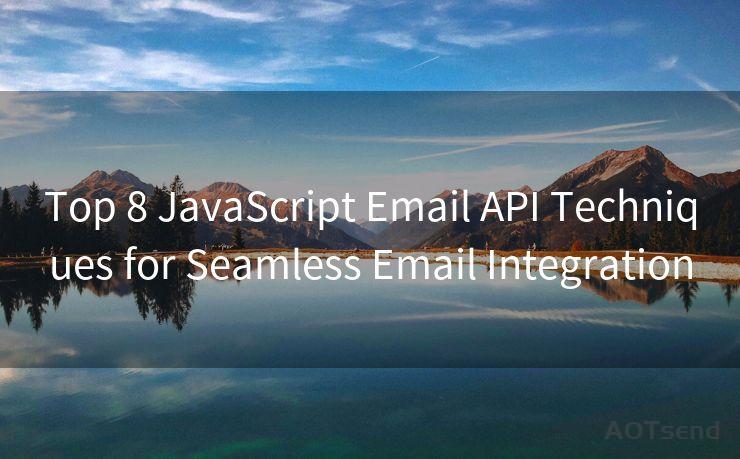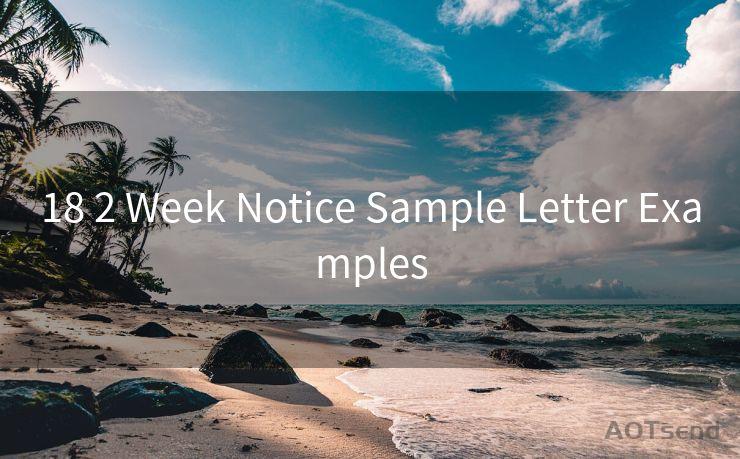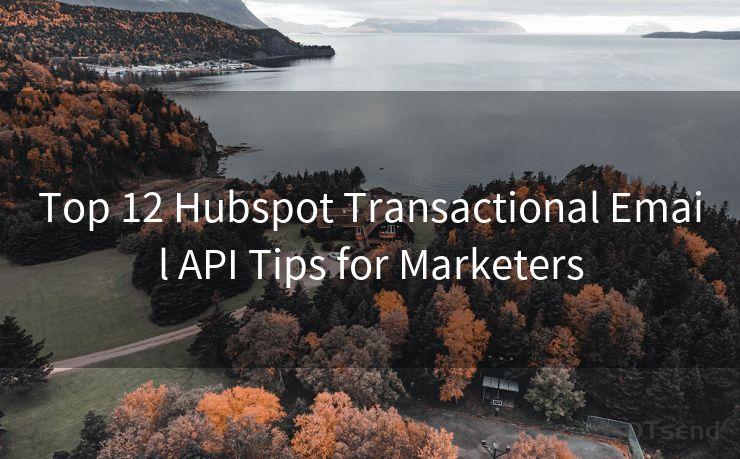19 ServiceNow Email API Best Practices
Hello everyone, I’m Kent, the website admin. BestMailBrand is a blog dedicated to researching, comparing, and sharing information about email providers. Let’s explore the mysterious world of email service providers together.




When integrating with the ServiceNow Email API, it's crucial to follow best practices to ensure smooth and efficient operations. Here are 19 essential best practices to keep in mind when working with the ServiceNow Email API.

1. Understand the API Capabilities
Before diving into integration, familiarize yourself with the full capabilities of the ServiceNow Email API. This understanding will help you leverage the API's full potential and avoid any unexpected limitations.
2. Secure Your API Credentials
Protect your API credentials like your life depends on it. Use secure storage mechanisms and never hardcode credentials in your application.
3. Test in a Sandbox Environment
Always test your integrations in a sandbox or development environment before deploying to production. This helps identify and resolve issues without disrupting live services.
4. Handle Errors Gracefully
Implement robust error handling mechanisms to manage API failures gracefully. This includes retrying failed requests and logging errors for future reference.
5. Optimize Your Requests
Minimize the number of API calls by batching requests and using appropriate query parameters. This helps reduce latency and improve overall performance.
6. Monitor API Usage
Regularly monitor your API usage to ensure you're within the prescribed limits. Exceeding these limits can lead to throttling or even account suspension.
7. Validate and Sanitize Input Data
Always validate and sanitize input data to prevent potential security risks like SQL injection or cross-site scripting (XSS) attacks.
8. Use the Latest API Version
Stay up to date with the latest API version to benefit from new features, improvements, and security patches.
9. Implement Pagination Wisely
When fetching large datasets, use pagination to reduce the load on both the API and your application.
10. Leverage Webhooks for Real-Time Updates
Utilize webhooks to receive real-time updates from the API, reducing the need for frequent polling and saving resources.
11. Document Your Integration
Thoroughly document your integration process, including endpoint details, request/response formats, and error handling procedures.
12. Comply with Data Protection Regulations
Ensure your integration complies with relevant data protection regulations, such as GDPR or CCPA, to avoid legal issues.
13. Use Compression for Large Payloads
When sending or receiving large payloads, consider using compression techniques to reduce transfer times and bandwidth usage.
14. Cache Frequently Accessed Data
Cache frequently accessed data locally to reduce the number of API calls and improve application responsiveness.
15. Implement Rate Limiting Mechanisms
Incorporate rate limiting mechanisms to prevent your application from overwhelming the API with excessive requests.
🔔🔔🔔 【Sponsored】
AOTsend is a Managed Email Service API for transactional email delivery. 99% Delivery, 98% Inbox Rate.
Start for Free. Get Your Free Quotas. Pay As You Go. $0.28 per 1000 Emails.
You might be interested in:
Why did we start the AOTsend project, Brand Story?
What is a Managed Email API, How it Works?
Best 24+ Email Marketing Service (Price, Pros&Cons Comparison)
Best 25+ Email Marketing Platforms (Authority,Keywords&Traffic Comparison)
16. Handle API Deprecations
Stay vigilant for API deprecations and plan accordingly to migrate to new endpoints or features before they are removed.
17. Utilize API Monitoring Tools
Employ API monitoring tools to track performance, identify bottlenecks, and receive alerts for potential issues.
18. Maintain a Feedback Loop with ServiceNow
Provide feedback to ServiceNow on API usage, bugs, or feature requests to help improve the platform for all users.
19. Continuously Review and Optimize
Regularly review your integration for performance, security, and compliance, making necessary optimizations as you go.
By following these best practices, you can ensure a smooth, secure, and efficient integration with the ServiceNow Email API. Remember, the key to a successful integration lies in constant monitoring, optimization, and staying up to date with the latest API developments.




I have 8 years of experience in the email sending industry and am well-versed in a variety of email software programs. Thank you for reading my website. Please feel free to contact me for any business inquiries.
Scan the QR code to access on your mobile device.
Copyright notice: This article is published by AotSend. Reproduction requires attribution.
Article Link:https://www.bestmailbrand.com/post6580.html











